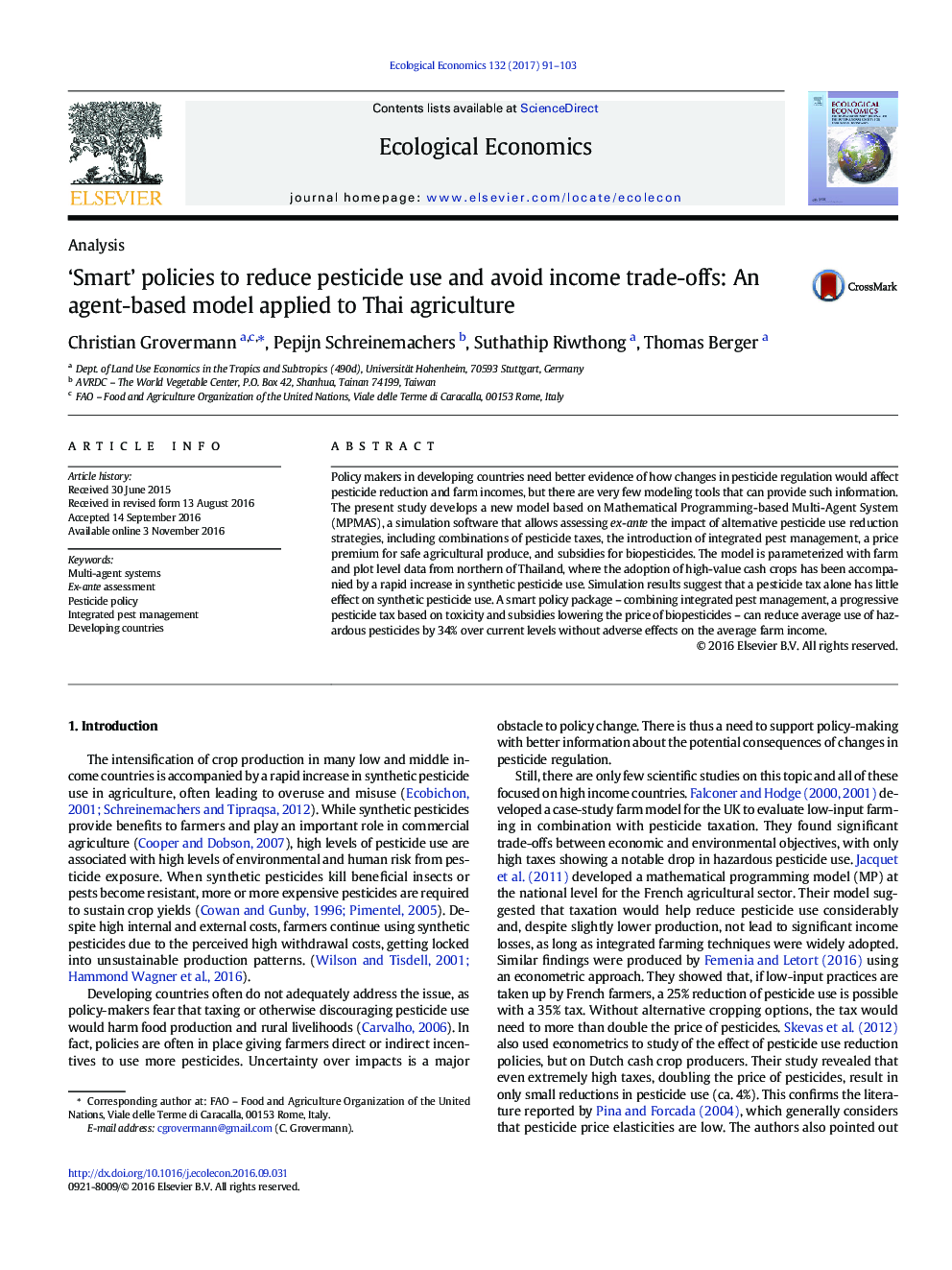| Article ID | Journal | Published Year | Pages | File Type |
|---|---|---|---|---|
| 5048823 | Ecological Economics | 2017 | 13 Pages |
Policy makers in developing countries need better evidence of how changes in pesticide regulation would affect pesticide reduction and farm incomes, but there are very few modeling tools that can provide such information. The present study develops a new model based on Mathematical Programming-based Multi-Agent System (MPMAS), a simulation software that allows assessing ex-ante the impact of alternative pesticide use reduction strategies, including combinations of pesticide taxes, the introduction of integrated pest management, a price premium for safe agricultural produce, and subsidies for biopesticides. The model is parameterized with farm and plot level data from northern of Thailand, where the adoption of high-value cash crops has been accompanied by a rapid increase in synthetic pesticide use. Simulation results suggest that a pesticide tax alone has little effect on synthetic pesticide use. A smart policy package - combining integrated pest management, a progressive pesticide tax based on toxicity and subsidies lowering the price of biopesticides - can reduce average use of hazardous pesticides by 34% over current levels without adverse effects on the average farm income.
